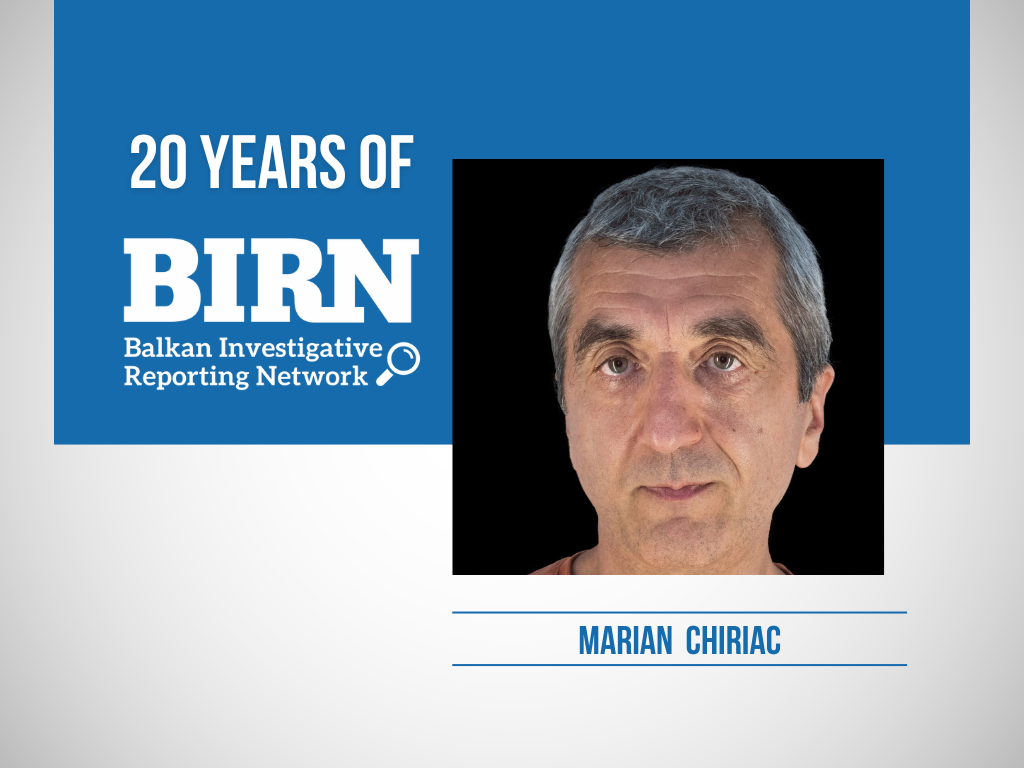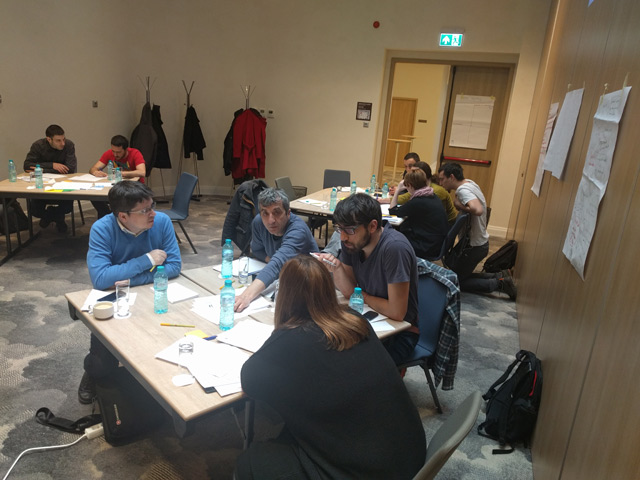Marian recalls learning about the establishment of BIRN from Gordana Igric, the founder of the Balkan Investigative Reporting Network.
“I had been in direct contact with her for over a year, as I was also collaborating with the Institute for War and Peace Reporting. I even remember attending an IWPR meeting – probably in 2004, in Sarajevo – when the decision to set up BIRN had already been made by a group of amazing women reporters, although it had not yet been implemented. Jokingly, I could say that, back then, I had to play the role of a sort of bodyguard for the ladies,” says Chiriac.
Establishing BIRN Romania was a significant turning point in his career, although he considers himself “just a journalist.
“I had no idea what establishing or running a media organisation meant. So, I accepted Goca’s urgent request to set up BIRN Romania, wanting in this way to expand the organisation’s presence by including a country that wasn’t part of the former Yugoslav space,” Chiriac explains.
As he recalled, back in 2005, he had ”little to no idea about what it takes to lead and grow a media organisation”, but he did have his expectations.
“What I hoped most was that, by being part of BIRN, I’d be able to report more professionally on what was happening in Romania. In the years that followed, I tried to learn essential new skills like project writing, organisational management, etc., but I can’t say I became a specialist,” Chiriac adds.
During the past two decades, Marian has noted many changes in our organisation.
”BIRN has changed enormously over 20 years, mainly for the good … It started as a small and enthusiastic group of journalists reporting professionally on local issues for an international audience, and grew into an organisation with hundreds of employees and collaborators running a wide range of projects, not just those directly related to journalism. The transformation has brought a lot of good, of course, but it hasn’t always been easy,” says Chiriac.
The same goes for BIRN Romania, he says, noting some of the main challenges that BIRN Romania has faced in its work.
”From the beginning, BIRN Romania faced several obstacles. The biggest one was, of course, the fact that I never managed (and to be honest, I didn’t try too hard, either) to take off the journalistic hat and wear only that of a project manager or country director,” he says.
“Had I done that, BIRN Romania might have grown more as an organisation. Another obstacle was the limited availability of funding sources for media projects in Romania compared to the other countries where BIRN has offices. Still, all things considered, I think we achieved something important: we kept BIRN alive and active, as much as possible,” Chiriac adds.
Talking about what BIRN means to him, he continues: ”BIRN allowed me to grow in a professional journalistic environment. It also means the friendships and the collegial respect I’ve shared with all the BIRN people I’ve had the chance to work with.”
Even if he could, he “wouldn’t change a thing in his professional path over the past 20 years”.
Outside of BIRN, he goes on, “he is just an ordinary guy”, reflecting on what he likes to do most. He also has an interesting dream.
“I enjoy spending time with my daughter and my family, staying active as much as possible – I love running – and dreaming that one day I’ll become a bookbinder and work with letterpress printing.”








